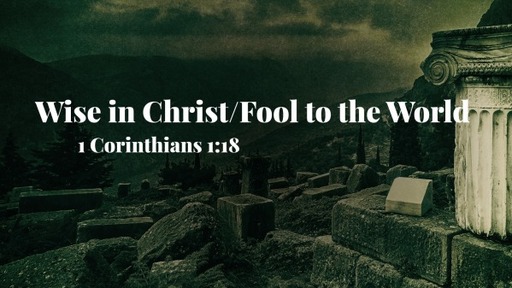Wise in Christ/Fool to the world

The ancient Greeks were in love with philosophy, around which their culture was built. They had perhaps as many as fifty identifiable philosophical parties or movements, which vied for acceptance and influence. Each had its views of man’s origin, significance, destiny, and relationship to the gods—of which they had many. Some of the philosophies had detailed schemes for the religious, political, social, economic, and educational ordering of society. The Greeks were in love with human wisdom. They believed that philosophy (philosophia,, “love of wisdom”) was all-important. Philosophy provided a view, invented by man, of the meaning of life, values, relationships, purpose, and destiny. Thus there were as many philosophies as there were philosophers, and people tended to line up behind their favorite. They widely disagreed as to which philosophy was the truest and most reliable, and, inevitably, many factions developed, each with its own leaders and adherents. Without an absolute standard for truth, ideas of right and wrong were based entirely on human opinion.
